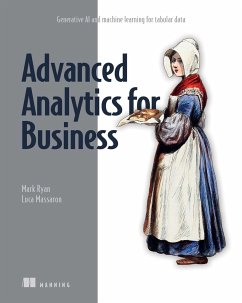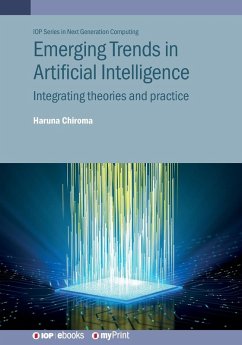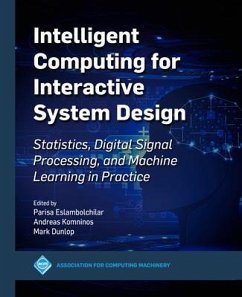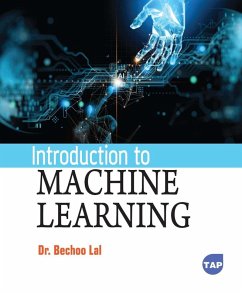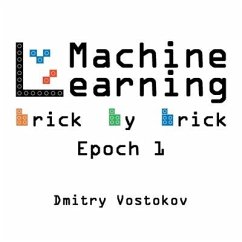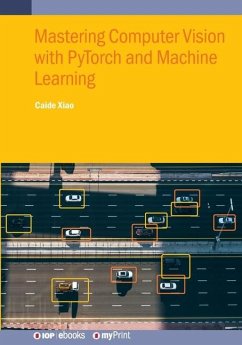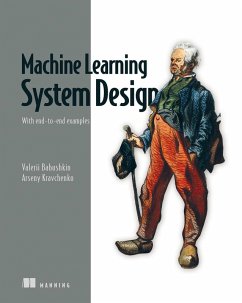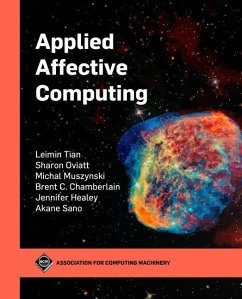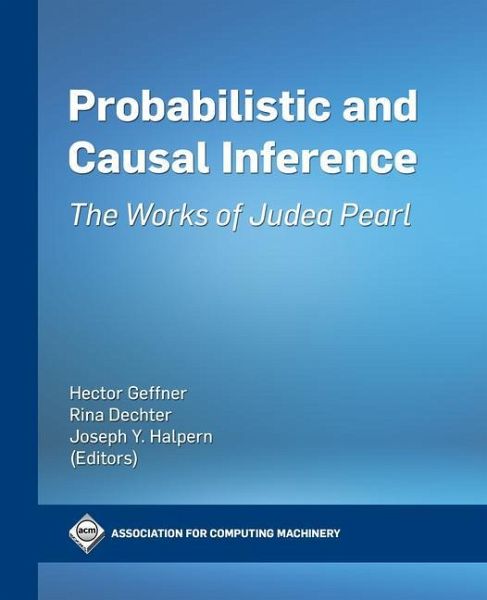
Probabilistic and Causal Inference
The Works of Judea Pearl
Versandkostenfrei!
Versandfertig in über 4 Wochen
Weitere Ausgaben:

PAYBACK Punkte
47 °P sammeln!




Professor Judea Pearl won the 2011 Turing Award ""for fundamental contributions to artificial intelligence through the development of a calculus for probabilistic and causal reasoning."" This book contains the original articles that led to the award, as well as other seminal works.
Hector Geffner was born and grew up in Buenos Aires, Argentina. He received a BSc in Electrical Engineering from the Universidad Simón Bolívar, Caracas, in 1983, and a PhD in Computer Science from UCLA in 1989. He then worked at the IBM T.J. Watson Research Center in New York for 2 years, and at the Universidad Simon Bolivar, in Caracas, Venezuela. Since 2001, Hector has been a researcher at the Catalan Institute of Advanced Research (ICREA) and a professor at the Universitat Pompeu Fabra, Barcelona. Currently, he is also a Guest Wallenberg Professor at the University of Linköping, Sweden. Hector's major research interests are in computational models of reasoning, action, learning, and planning. His research group pioneered a number of ideas in these areas including the formulation of planning as heuristic search, the formulation of goal recognition as planning, and formulations and methods for learning generalized plans. Currently, he is leading a project on representation learning for planning (RLeap) which is funded by an advanced grant from the European Research Council and that is aimed at bringing together model-free and model-based methods for acting and planning. Hector is a Fellow of AAAI and EurAI, and was an associate editor of the Artificial Intelligence journal and of the Journal of Artificial Intelligence Research. Among the awards he has received, he won best paper awards for papers published at JAIR and at the planning conference (ICAPS), three ICAPS Influential Paper Awards, and the 1990 ACM Dissertation Award for a thesis supervised by Judea Pearl. He is the author of the book Default Reasoning: Causal and Conditional Theories (MIT Press, 1992), and with Blai Bonet of A Concise Introduction to Models and Methods for Automated Planning (Morgan and Claypool, 2013). Together with Rina and Joe, Hector edited another book for Judea: Heuristics, Probability, and Causality: a Tribute to Judea Pearl (College Publications, 2010). Hector teaches courses on AI, logic, and social and technological change. Rina Dechter is a Distinguished Professor of Computer Science at University of California, Irvine. She holds a PhD in Computer Science from UCLA (1985), an MS in Applied Mathematics from the Weizmann Institute, Rehovot, Israel (1975), and a BS in Mathematics and Statistics from the Hebrew University in Jerusalem (1973). Dechter's research centers on computational aspects of automated reasoning and knowledge representation including search, constraint processing and probabilistic reasoning. She is the author of Constraint Processing published by Morgan Kaufmann (2003), and of Reasoning with Probabilistic and Deterministic Graphical Models: Exact Algorithms published by Morgan and Claypool Publishers (2013, second ed. 2019). She has authored and coauthored almost 200 research papers. Dechter is a Fellow of the Association for the Advancement of Artificial Intelligence (AAAI) (1994), of the Association for Computing Machinery (ACM) (2013), and the American Association for the Advancement of Science (AAAS) (2021), and was a Radcliffe Fellow from 2005 to 2006. She received the Association of Constraint Programming (ACP) Research Excellence Award (2007), and a Classic AI Paper Award for a paper co-authored by Itay Meiri and Judea Pearl. She served as a co-editor-in-chief of Artificial Intelligence from 2011 to 2018. She also served on the editorial boards of Artificial Intelligence, Constraints Journal, the Journal of Artificial Intelligence Research, and the Journal of Machine Learning Research. Dechter served as program chair or conference chair of several conferences including Constraint Programming in 2000, AAAI in 2002, and Uncertainty in AI (UAI) in 2006 and 2007. She is the conference chair-elect of International Joint Conference on Artificial Intelligence (IJCAI)-2022. Joseph Halpern received a BSc in Mathematics from the University of Toronto in 1975 and a PhD in mathematics from Harvard in 1981. In between, he spent 2 years as the head of the Mathematics Department at Bawku Secondary School, in Ghana. After a year as a visiting scientist at the Massachusetts Institute of Technology (MIT), he joined the IBM Almaden Research Center in 1982, where he remained until 1996, also serving as a consulting professor at Stanford. In 1996, he joined the Computer Science Department at Cornell University, where he is currently the Joseph C. Ford Professor and was department chair from 2010 to 2014. Halpern's major research interests are in reasoning about knowledge and uncertainty, security, distributed computation, decision theory, and game theory. Together with his former student, Yoram Moses, he pioneered the approach of applying reasoning about knowledge to analyzing distributed protocols and multi-agent systems. He has coauthored five patents, three books (Reasoning About Knowledge, MIT Press 2003; Reasoning about Uncertainty, MIT Press 2003; and Actual Causality, MIT Press 2016), and over 360 technical publications. Halpern is a Fellow of the AAAI, the American Association for the Advancement of Science (AAAS), the American Academy of Arts and Sciences, ACM, IEEE, the Game Theory Society, the National Academy of Engineering, and the Society for the Advancement of Economic Theory (SAET). Among other awards, he received the Kampe de Feriet Award in 2016, the ACMSIGART Autonomous Agents Research Award in 2011, the Dijkstra Prize in 2009, the ACM/AAAI Newell Award in 2008, and the Godel Prize in 1997, and was a Guggenheim Fellow from 2001 to 2002, and a Fulbright Fellow from 2001 to 2002 and 2009 to 2010. Two of his papers have won best-paper prizes at the IJCAI (1985 and 1991), and another two received best-paper awards at the Knowledge Representation and Reasoning Conference (2006 and 2012). He was editor-in-chief of the Journal of the ACM (1997–2003) and has been program chair of a number of conferences, including the Symposium on Theory in Computing (STOC), Logic in Computer Science (LICS), UAI, Principles of Distributed Computing (PODC), and Theoretical Aspects of Rationality and Knowledge (TARK). He started and continues to be the administrator of CoRR, the computer science section of arxiv.org.
Produktdetails
- Verlag: Association for Computing Machinery and Morgan & Claypool Publishers
- Seitenzahl: 944
- Erscheinungstermin: 10. März 2022
- Englisch
- Abmessung: 235mm x 190mm x 49mm
- Gewicht: 1624g
- ISBN-13: 9781450395878
- ISBN-10: 1450395872
- Artikelnr.: 63661107
Herstellerkennzeichnung
Libri GmbH
Europaallee 1
36244 Bad Hersfeld
gpsr@libri.de
Für dieses Produkt wurde noch keine Bewertung abgegeben. Wir würden uns sehr freuen, wenn du die erste Bewertung schreibst!
Eine Bewertung schreiben
Eine Bewertung schreiben
Andere Kunden interessierten sich für




